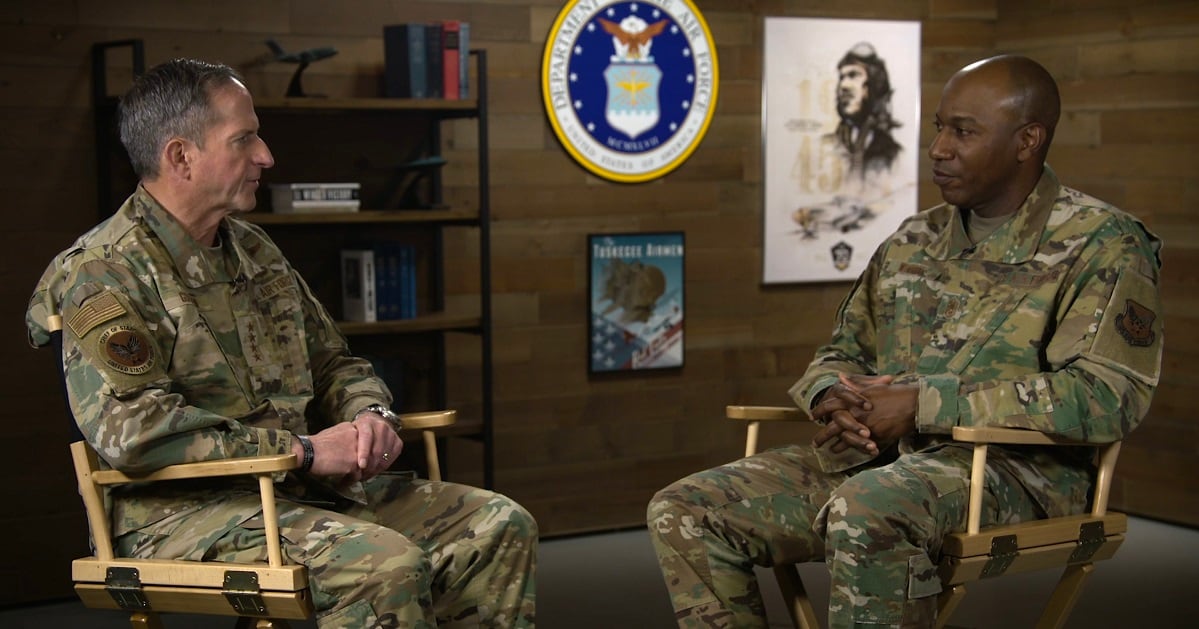As white colonels, you and I are the biggest barriers to change if we do not personally address racial injustice in our Air Force. Defensiveness is a predictable response by white people to any discussion of racial injustice. White colonels are no exception. We are largely blind to institutional racism, and we take offense to any suggestion that our system advantaged us at the expense of others.
That I addressed this letter to white colonels made many of you uneasy, and we have seen similar white defensiveness play out in many of our conversations since the murder of George Floyd.
In a meeting with other white colonels, I drew attention to the reality that racial tension remains an important issue to address, after another Black man was killed by police and a restaurant was burned down during the ensuing outcry.
Two white colonels responded by joking about the burned-down restaurant. My introduction of race into the conversation created social discomfort, which they tried to ameliorate with humor.
A white colonel then brought up his concerns with the way a Black officer on the base portrayed the problem of racial injustice. Rather than considering the issue, we took a detour to question the methods and message of the Black officer.
RELATED

A white colonel worried that a wing-level discussion about the disproportionate rate of Article 15s given to Black Airmen would have a chilling effect on holding minorities accountable and would degrade good order and discipline. He deflected meaningful discussion of racial injustice in the Air Force by summarily stating that such discussion damaged the foundation of military discipline.
A white colonel raised his disagreement with a Black senior enlisted leader’s story of being offered an Article 15 for his boisterous, singing personality when he was an airman. When the Black enlisted leader told the story, he was the only Black person in the room, the only person with first-hand experience on the receiving end of unbalanced Article 15s. By later discrediting the story, the colonel ended further examination of the role of cultural difference on discipline decisions by supervisors.
A white colonel agreed that when anyone joins the Air Force, they need to adopt the culture of the Air Force, that we should not make cultural accommodations. By obscuring any cultural differences in the Air Force, he excused himself from the need to dig into the underlying issue of racial disparity.
A white colonel questioned the Air Force Inspector General data that showed racial disparities in our justice system. He theorized that if minorities were predominantly in career fields that had a lower threshold for discipline, the data might not be as bad as it looked. While his critique of Air Force accessions practices and demographic binning was worth exploring, it obviated the need to consider how the Inspector General data might reveal actual problems with our biases.
A white colonel asserted that making race a focus area would cost us mission focus. He entreated us that while everyone wanted to spend time on race, we have “real sh*t to do …” Ironically, we spent the first 50 minutes of the hour talking about “real sh*t” and consigned any discussion of race to the last 10 minutes. He was right to point out that we cannot afford to let our mission focus slip, and with COVID-19 bearing down on us, executing the mission is more complicated than ever. However, if we buy into a false binary choice between addressing racial injustice or keeping mission focus, we give ourselves a moral fig leaf and justify our lack of action in addressing or understanding race in our formations.
Maybe similar words crossed your lips or your mind. If not, did you find yourself agreeing with them now?
Dear white colonel, you and I set the culture, drive the calendar, and create the policies at most of our installations around the Air Force. If we do not take the time to learn, to show humility, to address our blind spots around race, and to agree that we are not as objective as we think and our system is not as fair as we think, then our Air Force will not rise above George Floyd’s murder. But we can rise above it, we can break these invisible barriers, if we choose to engage and stop excusing ourselves.
The chief of staff and the chief master sergeant of the Air Force gave us their intent, “we have been presented a crisis. We can no longer walk by this problem. We must look inward at our Air Force, and at every echelon of command, so we emerge stronger as a profession of arms.” Over to us.
Start by developing a game plan. A good primer is to read or listen to the short book, “White Fragility: Why It’s So Hard for White People to Talk About Racism” by Robin DiAngelo.
Dear white colonel, it is time to give a damn. Aim High.
Col. Ben Jonsson is an active duty Air Force officer. The views expressed are the personal views of the author and do not represent the official views of the U.S. Air Force, the Department of Defense or Air Force Times.





